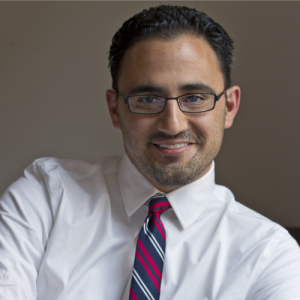
 by C. Estela Vasquez Guzman, Ph.D., and Jacob Vigil, MSW
by C. Estela Vasquez Guzman, Ph.D., and Jacob Vigil, MSW
Nov. 14, 2018
Imagine having to make this impossible choice: you can either get health care or you can keep your parents safe. If you’re a child, that choice is simple – you need to keep your parents safe, because your own safety depends upon it.
As crazy as that choice sounds, it’s a very real one that countless American children face every day. In New Mexico, 70,000 U.S.-born children live in mixed-status households – meaning one or more family members is an immigrant. And a recently proposed rule change has families with immigrant members fearful about accepting any government assistance for their American-born children.
The proposed federal rule change relates to what is known as “public charge.” When an immigrant who’s been residing in the U.S. with documentation applies for a visa or permanent residency, the federal government must determine if they are likely to become a “public charge” – meaning they would be primarily dependent on certain government safety-net programs. Before the proposed changes, only cash assistance benefits were considered when making a public charge determination. In October, however, the Trump administration published proposed changes to the public charge definition that added several non-cash public benefits (e.g. SNAP, Medicare Part D, and Housing vouchers). The current proposed rule does not change the fact that public benefits received by immigrant parents on behalf of their American-born children are not counted toward public charge. Still, this proposal has exacerbated the climate of fear, which, along with widespread misunderstanding about the rules, has caused many parents to forgo the benefits that their U.S. citizen children are eligible to receive.
Thousands of New Mexicans – including U.S. citizens, and current and prospective authorized immigrants – are having to choose between meeting basic needs like health care and food, and the ability of a family member to legally immigrate. This puts our state at risk for losing millions of federal dollars. Estimates predict between $88 million and $205 million could be lost here in New Mexico as a result of rising rates of disenrollment in various federally funded programs. This loss is significant and threatens New Mexico’s long-term economic health. If hundreds to thousands of New Mexicans simply skip health care, food, and housing assistance in order to avoid problems with immigration, the result will be a sicker, hungrier, poorer New Mexico.
The children that would go without opportunities that could help them thrive and succeed are New Mexicans, and they will one day grow up to be contributing members of our communities. We know from decades of research that children who receive access to critical services such as food, housing, and medical care do better across a number of indicators. They are healthier, they do better in school, and their earning potential increases as well. Punishing these children because of where their parents were born is not only misguided, but it is just one more distressing piece of a wider agenda aimed at devaluing and expunging the immigrant story and presence from American life.
While the Trump Administration continues to promote false narratives about immigrants, the truth is that immigrants must live in this country legally for five years before they are eligible for public benefits like Medicaid or cash assistance. Undocumented immigrants, except for refugees and asylees, are banned from receiving any public benefits except emergency health care. All immigrants, regardless of their legal status, have the right to receive benefits for their U.S.-born children when those children are eligible to receive them.
What’s more, targeting people who are a driving force in New Mexico’s economy when the state still hasn’t fully recovered from the recession is shortsighted and misguided. Immigrants come here to work so they can build better lives for their families. And immigrants who are working and spending money here are also paying taxes here.
If the United States is a melting pot of immigrants and indigenous peoples, then New Mexico is a prime representation of this uniquely American mix. Proposed public charge changes would make using health, nutrition, or affordable housing programs a disqualifier for immigration, putting hundreds of thousands of New Mexican families, who are valuable members of our communities, at risk. New Mexicans believe that everyone deserves to be treated with compassion, regardless of who they are or where they were born, and the public charge changes are a direct assault on those values.
What you can do
Any and all concerned New Mexicans have until December 10, 2018 to submit public comments on the proposed changes to public charge regulations. Please take a few minutes to submit a comment against this policy via the regulations page. We encourage comments that include your name and affiliation, clearly indicate your position on the proposed rule, include a story or a concrete example of the impact the change might have, and end with an opposition to the proposed rule. For more details, New Mexico Voices for Children has developed these fact sheets (in English and Spanish). And a number of other resources are also available. You can visit Protecting Immigrant Families and download a toolkit from FRAC to make your voice heard and keep up on the latest news.
C. Estela Vasquez Guzman and Jacob Vigil are research and policy analysts with New Mexico Voices for Children.
